₹ 999.00 – ₹ 2,840.00
Removes silicate and phosphate
Spherical for optimal hydrodynamics
Irreversible binding
| Select Size |
100ml ,250ml ,500ml ,1Ltr ,2Ltr ,4Ltr |
|---|---|
| Brand |
PhosGuard™ rapidly removes phosphate and silicate from marine and freshwater aquaria. It is not recommended for phosphate buffered freshwater. PhosGuard™ is highly porous for high capacity and bead-shaped for optimum water flow.
Aluminum Oxide, Soluble Aluminum, and Coral Toxicity
In recent years, there has been speculation that aluminum oxide based phosphate removers like PhosGuard™ release aluminum into the water and subsequently damage corals. The evidence to support this claim was largely anecdotal.
So, through a series of controlled experiments in both freshwater and saltwater, we intended to address both the question of aluminum solubility and aluminum toxicity. The results of these experiments show that under reef conditions (pH near 8) there is no detectable soluble aluminum released from alumina. Under conditions of low pH and high dosage levels, soluble aluminum can be released from alumina; at three times the label dosage rate, we detected 0.2 mg/L aluminum at a pH of 5.3.
Additionally, aluminum oxide is not easily absorbed into the cell to cause negative reactions. Even at three times the dose of PhosGuard™, soft-bodied corals such as Sarcophyton remain unaffected.
For the full report on this study, click here.
Directions
May generate heat on initial contact with water. Pre-wet by adding to a double volume of freshwater, followed by a rinse. For best results, PhosGuard™ should be rinsed before use and placed so as to maximize the flow of water through it but not so that it tumbles against itself in flow. It may be used in a canister filter, media chamber, box filter, or any high flow area of a trickle filter. Use of a filter bag is recommended. Use 85 mL (1/3 cup) for every 200 L (50 US gallons) saltwater or 400 L (100 US gallons) freshwater.
Leave product in place for 4 days, then test phosphate or silicate concentrations with either MultiTest™: Phosphate or MultiTest™: Silicate. If the concentration of the component you are trying to decrease has not dropped to around 0.02 mg/L, then replace the PhosGuard™, otherwise leave in place until levels begin to climb again. As long as concentrations remain under control, the product is not exhausted. Over treating is not recommended. PhosGuard™ is not an exchange resin and does not release anything into the water. It does not leach phosphate or silicate back into the water and may be removed, dried, and returned to service until exhausted. Continuous use of small quantities is better than intermittent use of larger quantities.
| Select Size |
100ml ,250ml ,500ml ,1Ltr ,2Ltr ,4Ltr |
|---|---|
| Brand |
1 review for Seachem PhosGuard
| 5 star | 100% | |
| 4 star | 0% | |
| 3 star | 0% | |
| 2 star | 0% | |
| 1 star | 0% |
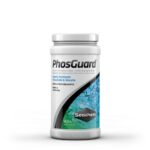 Seachem PhosGuard
Seachem PhosGuard

SHIPPING
Orders placed before 12Noon will be processed & shipped on the same day (excluding Sunday & local holiday)
Delivery within 2 ~ 6 days depends on the ordered item and shipping mode
Guaranteed 48Hrs door delivery for Light Weight Parcels for some products/brands
Certain Drop Ship products (brands) like AquaVitro, Fritz, Marrggoo, Eheim, Fluval and Ocean Nutrition may take 1-2 days to process and ship from drop shipper locations.
Shipping and delivery time may vary as per courier which is subject to availability
Shipping will be done through BlueDart, Delhivery, DTDC, Amazon Shipping, eKart, EcomExpress, Speed Post , Professional Courier and ST Courier
However, if you have any preferred courier partner then kindly make a note while placing the order.
We have warehouse in all metro and in some major cities. Shipping will be done from Chennai, Bangalore, Delhi, Kolkata, Mumbai, Pune and Hyderabad, subject to stock availability locations
For more information click here
DELIVERY
Kindly note that unboxing video is mandatory for multi part products like skimmer, canister filter, LED lights, pump and glassware items to confirm the receipt of the contents inside the box are in tact and safe.
Kindly note that all shipments are insured against transit damage. Customer need to report the damage within 48Hrs against receipt of the shipment, NO refund / NO exchange / NO replacement will be offered if customer fail to provide unboxing video or inform the damage
Pre Paid Shipping included.
All prices mentioned in the site are inclusive of GST and Shipping Cost**
** – GST credit not available for certain products + additional shipping charges may be applicable for certain products/brands or for certain pincode. Additional shipping cost will be displayed during checkout, subject to minimum order value


DELIVERY
Kindly note that unboxing video is mandatory for multi part products like skimmer, canister filter, LED lights, pump and glassware items to confirm the receipt of the contents inside the box are in tact and safe.
Kindly note that all shipments are insured against transit damage. Customer need to report the damage within 48Hrs against receipt of the shipment, NO refund / NO exchange / NO replacement will be offered if customer fail to provide unboxing video or inform the damage
Pre Paid Shipping included.
All prices mentioned in the site are inclusive of GST and Shipping Cost**
** – GST credit not available for certain products + additional shipping charges may be applicable for certain products/brands or for certain pincode. Additional shipping cost will be displayed during checkout, subject to minimum order value
SHIPPING
Orders placed before 12Noon will be processed & shipped on the same day (excluding Sunday & local holiday)
Delivery within 2 ~ 6 days depends on the ordered item and shipping mode.
Guaranteed 48Hrs door delivery for Light Weight Parcels for some products/brands
Orders placed after 11AM will be shipped on next business day.
Certain Drop Ship products (brands) like AquaVitro, Fritz, Marrggoo, Eheim, Fluval and Ocean Nutrition may take 1-2 days to process and ship from drop shipper locations.
Shipping and delivery time may vary as per courier which is subject to availability
Shipping will be done through BlueDart, Delhivery, DTDC, Amazon Shipping, eKart, EcomExpress, Speed Post , Professional Courier and ST Courier
However, if you have any preferred courier partner then kindly make a note while placing the order.
We have warehouse in all metro and in some major cities. Shipping will be done from Chennai, Bangalore, Delhi, Kolkata, Mumbai, Pune and Hyderabad, subject to stock availability locations
For more information click here




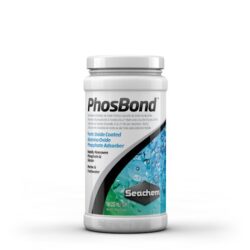
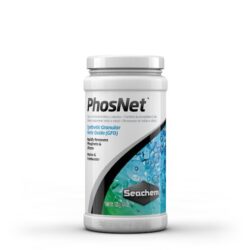
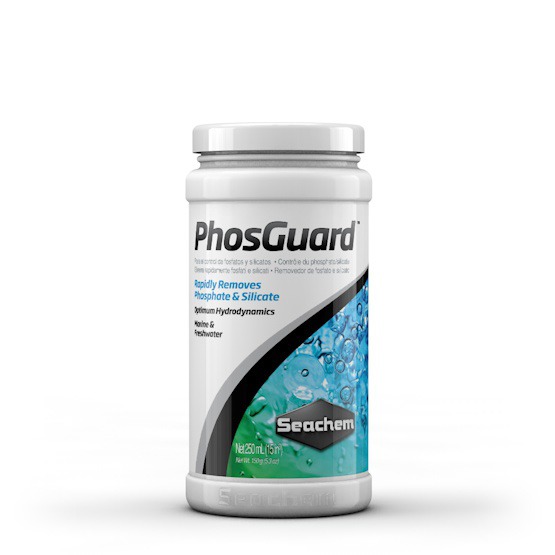
![phosguard-bulk[1] Seachem Phosguard](https://www.aquazones.in/wp-content/uploads/2017/08/phosguard-bulk1.jpg)
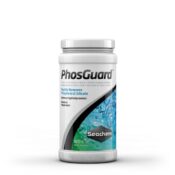
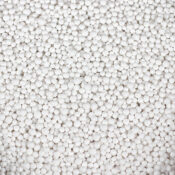
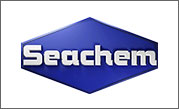
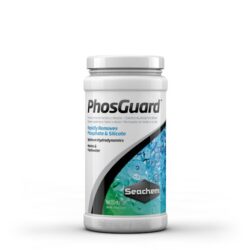

Worked for me